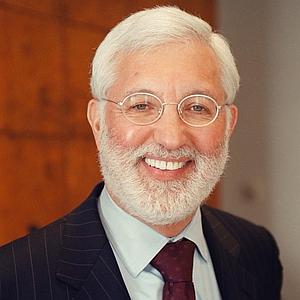
Corporate Governance


Conflicts of Interest and Competition in the Proxy Advisory Industry
The following comes to us from Tao Li, Assistant Professor, Warwick Business School
Proxy advisors, private firms that help investors decide how to vote their shares, play an extremely powerful role in shaping corporate governance. As institutional investors vote billions …
Morrison Foerster’s Regulatory Reform Glossary
On Monday, December 16th, Morrison Foerster released what may be a first-of-its-kind regulatory reform glossary. The glossary, which is not comprehensive, is intended to serve as a helpful summary of neologisms and other acronyms (e.g., SIFI), nicknames (e.g., repo), and …

Hedge Fund Advisers’ Systemic Risk Disclosures in Bankruptcy
Hedge funds’ distressed and default debt investments in the United States have increased dramatically in the last two decades (from around $70 billion in 1998 to around $867 billion in 2007) and hedge funds with strategies that focus on distressed …

How Financial Institutions May Benefit from Changes to the Rule Against Perpetuities
In the late 1980s, large financial institutions successfully marketed a new exemption in the tax code authorizing the perpetual insulation of wealth from federal transfer taxes. Specifically, the 1986 tax code reforms included an exemption from the federal Generation Skipping …

Federal Agencies Adopt the Long-Awaited Volcker Rule

Delaware Court Confirms High Bar To Escape Deal
The following post is based on a memo originally published by Cadwalader, Wickersham & Taft LLP on November 14, 2013 which can be found here.
Two recent Delaware Chancery Court opinions, issued on October 25 and November 9, 2013, …

The Underappreciated Importance of Personal Jurisdiction in Delaware’s Success
In an article to be published this Spring in the DePaul Law Review, I argue that Delaware’s position as the center of corporate litigation has been rooted in two unique but unconstitutional approaches to personal jurisdiction over fiduciaries. Until Delaware …

Independent Directors as a Handy Political Tool
Boards of public corporations have more independent directors than ever before. Sixty percent of boards of S&P 500 companies are not only majority independent, but have a single insider on the board: the CEO. While Jamie Dimon is still CEO …

A Corporate Culture Channel: How Increased Shareholder Governance Reduces Firm Value
The following comes to us from Jillian Popadak, an applied economics doctoral student in the Business Economics and Public Policy Department at Wharton, University of Pennsylvania.
Corporate governance affects firm value, capital productivity and economic growth. Given its economic importance, …
Wachtell Lipton on ISS Addressing Dissident Director Compensation Bylaw
ISS Proxy Advisory Services recently recommended that shareholders of a small cap bank holding company, Provident Financial Holdings, Inc., withhold their votes from the three director candidates standing for reelection to the company’s staggered board (all of whom serve on …

Embracing the S.E.C.’s New Executive Compensation Disclosure Rule
The S.E.C recently provoked a storm of controversy when it voted to amend the executive compensation reporting requirements for public companies under the Dodd Frank Act. Many commentators, corporate leaders, and law firms immediately attacked the proposed rules and have …

SEC Enforcement: Talking the Talk, But Walking the Walk?
Almost everyone has an opinion about securities enforcement. Many are disappointed (and even angry) that “few high level executives” have been prosecuted (criminally or even civilly) in connection with the 2008 financial crisis.[1] Deep in their bunker, the SEC …

Finding Value in Shareholder Activism
The following comes to us from Bernard S. Sharfman, Visiting Assistant Professor of Law at Case Western Reserve University School of Law.
In this era of shareholder activism, there are still many attorneys and academics who believe that the traditional …
Davis Polk discusses SEC Release of Final Municipal Advisor Registration Rules, Part II: Permanent Registration Process
The following is based on a memo from Davis Polk, published on October 7, 2013, which is available here. The original memo contains many useful tables and definitions which have been omitted from this post.
On September 18, 2013, …
Davis Polk discusses SEC Release of Final Municipal Advisor Registration Rule, Part I: Who is a Municipal Advisor?
On September 18, 2013, the Securities and Exchange Commission (“SEC”) adopted its final rule on the permanent registration of municipal advisors (the “Final Rule”). The Final Rule replaces the current temporary registration scheme for municipal advisors
Wachtell discusses Delaware Chancery Court’s Holding that Control over All Privileged Communications Passes to the Surviving Corporation in a Merger
Last week, the Delaware Court of Chancery ruled that an acquiring merger party obtains legal control of all of a target’s attorney-client communications, absent an express provision in a merger agreement to the contrary. Great Hill Equity Partners IV, LP …

Why Have No High Level Executives Been Prosecuted In Connection With The Financial Crisis?
The following comes to us from the Honorable Judge Jed S. Rakoff, who sits in the U.S. District Court for the Southern District of New York. Judge Rakoff is also an adjunct professor at Columbia Law School and will be …

Why Paying Bonuses During a Financial Crisis Might Strengthen the Economy
The following comes to us from Felix Zhiyu Feng, a PhD candidate from the department of economics at Duke University
The lucrative compensation of Wall Street bankers and executives has always been an issue of media interest and public concern. …

The Constitutional Standing of Corporations
Are corporations “persons” with constitutional rights? The Supreme Court has famously avoided addressing the issue head on. In Citizens United, which like no other decision in recent memory elevated the importance of the question whether organizations can assert constitutional rights,…
 Sky Blog
Sky Blog